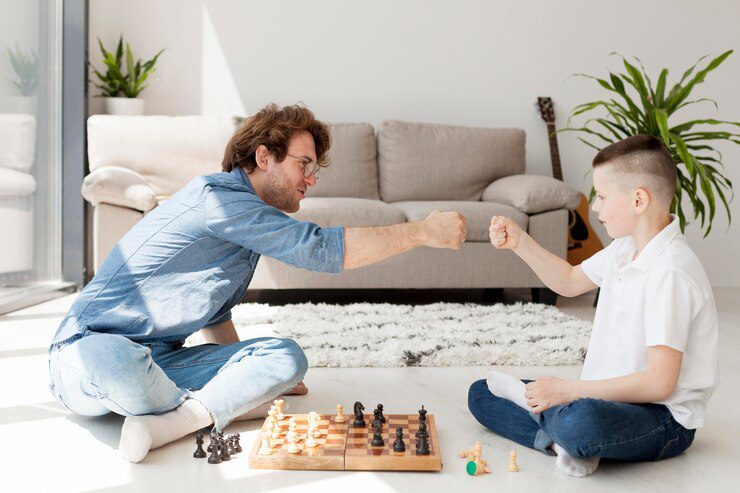Chess is not merely a game of strategy and skill; it is a battleground where minds clash in a fierce competition of intellect and psychology. Behind every move on the board lies a complex interplay of cognitive processes, emotions, and psychological tactics. In this exploration of the psychology of winning in competitive chess, we delve into the intricacies of mind games that separate the champions from the contenders.
The Power of Perception
In the world of competitive chess, perception is everything. How a player perceives their opponent, the board position, and their own capabilities can significantly impact their chess strategies and decision-making process. Champions possess a keen sense of perception, able to accurately assess the strengths and weaknesses of their opponents while maintaining a clear understanding of their own abilities.
The Importance of Confidence
Confidence is a potent weapon in the arsenal of any chess player. Believing in one’s abilities can instill a sense of self-assuredness that radiates through grandmaster moves on the board. A confident player exudes dominance and control, often intimidating their opponent and forcing them onto the defensive. Cultivating confidence is not merely a matter of skill; it is a psychological mindset that separates the winners from the rest.
The Art of Deception
Chess is a game of deception as much as it is a game of strategy. Skillful players employ psychological tactics to mislead, confuse, and outmaneuver their opponents. From feints and bluffs to subtle manipulations of the board position, deception plays a crucial role in gaining the upper hand in competitive chess. Mastering the art of deception requires a deep understanding of human psychology and the ability to anticipate your opponent’s reactions.
Emotional Resilience
Emotional resilience is a hallmark of championship-caliber chess players. In the heat of battle, emotions can run high, clouding judgment and leading to costly mistakes. Champions remain calm and composed under pressure, able to maintain their focus and concentration even in the face of adversity. Developing emotional resilience requires mental discipline, self-awareness, and the ability to regulate one’s emotions effectively.
The Psychology of Time Pressure
Time pressure is a formidable psychological factor in competitive chess. As the clock ticks down, players must make critical decisions under duress, often leading to errors and oversights. Champions excel under time pressure, able to think quickly and make decisive moves without sacrificing accuracy. Managing time effectively requires mental agility, strategic planning, and the ability to maintain composure in high-stakes situations.
The Role of Visualization
Visualization is a powerful tool in the arsenal of any chess player. Champions possess the ability to visualize multiple moves ahead, predicting their opponent’s responses and calculating the potential outcomes of each variation. By mentally simulating different scenarios, players can anticipate threats, formulate strategies, and stay one step ahead of their opponents. Visualization requires mental acuity, spatial awareness, and the ability to think abstractly.
The Mindset of a Champion
At the heart of winning in competitive chess lies the mindset of a champion. Champions possess an unwavering belief in their abilities, a relentless drive to succeed, and an insatiable hunger for victory. They approach every game with a winning mentality, refusing to accept defeat and relentlessly pursuing their goals. The mindset of a champion is not born overnight; it is cultivated through years of dedication, discipline, and a relentless pursuit of excellence.
Conclusion
In the arena of competitive chess, victory is not merely determined by the strength of one’s moves but by the intricate dance of psychology unfolding on the board. Champions possess a deep understanding of the psychological factors at play, leveraging them to gain a decisive edge over their opponents. From perception and confidence to deception and emotional resilience, the psychology of winning in competitive chess is a complex tapestry of cognitive processes and psychological tactics. By mastering the mental game, players can elevate their performance to new heights and achieve greatness on the battlefield of the mind.







